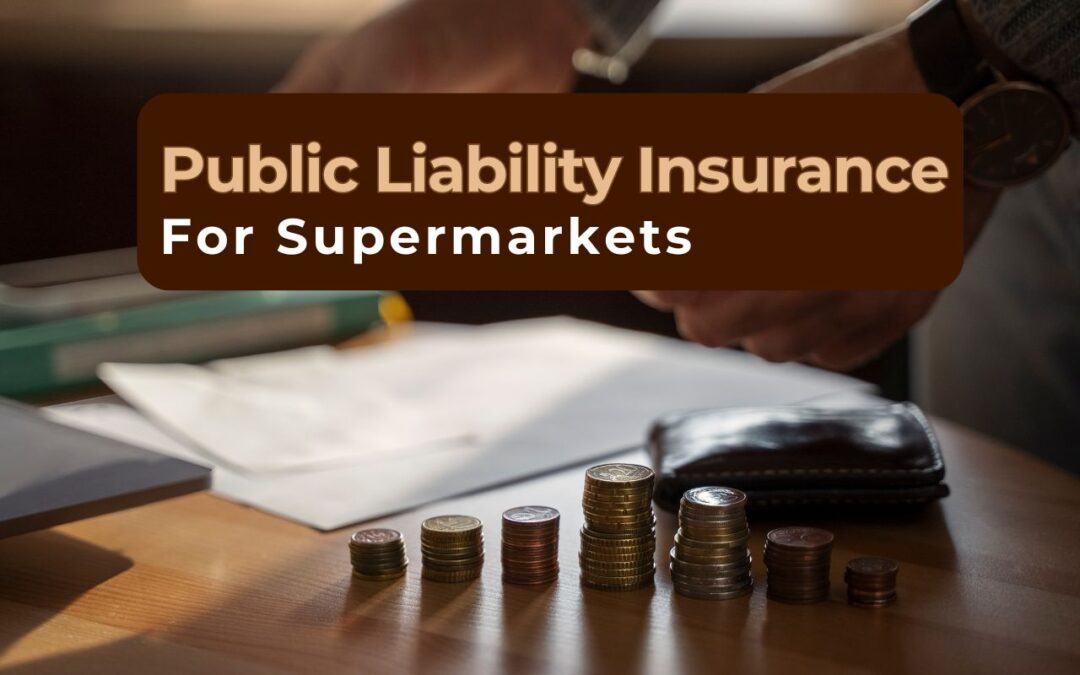Running a supermarket is a complex operation involving various moving parts: customer service, inventory management, employee oversight, and regulatory compliance. One critical, often overlooked component of supermarket management is risk mitigation, particularly through appropriate insurance coverage. Among the most important types of insurance for supermarkets is public liability insurance. This form of insurance provides vital protection against third-party claims for injury or property damage occurring on your premises.
In this comprehensive guide, we explore public liability insurance in depth. We will cover what it is, why it’s essential, what it covers and doesn’t cover, how to choose the right provider, and how to ensure your supermarket is fully protected. Whether you operate a small neighborhood grocery store or a large supermarket chain, understanding public liability insurance is crucial for safeguarding your business.
What is Public Liability Insurance?
Public liability insurance is a type of business insurance that protects your supermarket against legal claims made by third parties, including customers, visitors, or even delivery personnel, who suffer injury or damage while on your premises.
Examples of Claims:
- A customer slips on a freshly mopped floor and sustains a back injury.
- A child trips over an unattended cart and breaks an arm.
- A customer’s vehicle is damaged due to a falling item from the loading dock.
In these cases, public liability insurance covers legal costs, medical expenses, and any court-awarded damages. Without this insurance, the financial burden of such claims could be devastating.
Why Supermarkets Need Public Liability Insurance
Supermarkets are high-risk environments due to the volume of foot traffic, the nature of goods sold (e.g., liquids, glass containers), and the physical layout of the store. Here are several reasons why having insurance for supermarkets, particularly public liability coverage, is indispensable:
1. High Footfall = High Risk
Supermarkets experience continuous customer traffic. This increases the likelihood of accidents, such as slips, trips, or falls.
2. Legal Requirements and Lease Agreements
In many jurisdictions, public liability insurance is a legal requirement for operating a business. Additionally, if you lease your supermarket space, landlords often require proof of liability coverage.
3. Financial Protection
Claims can result in massive legal and medical expenses. Without insurance, paying out of pocket could put your business at serious risk.
4. Reputation Management
Handling claims professionally and efficiently, supported by an insurer, can help maintain your store’s reputation.
5. Peace of Mind
Knowing you’re covered against unforeseen incidents lets you focus on running your business instead of worrying about potential lawsuits.
What Does Public Liability Insurance Cover?
The scope of public liability insurance typically includes:
1. Bodily Injury
Covers medical costs and compensation if someone is injured on your premises.
2. Property Damage
Covers repair or replacement costs for property damaged due to your business operations.
3. Legal Costs
Covers the legal expenses of defending your supermarket against claims, including lawyer fees, court costs, and settlements.
4. Compensation Payments
If your supermarket is found liable, the insurer pays the compensation awarded to the injured or affected party.
What It Doesn’t Cover
It’s important to understand what public liability insurance does not cover:
- Employee Injuries: Covered under employers’ liability insurance.
- Product Liability: Requires separate product liability insurance if a sold item causes harm.
- Theft or Fire Damage: Covered under commercial property insurance.
- Business Interruptions: Requires a separate business interruption policy.
To ensure comprehensive protection, supermarkets often bundle various policies together.
Real-Life Cases Highlighting the Importance of Public Liability Insurance
Case Study 1: Slippery Floor, Expensive Mistake
In Sydney, a customer sued a supermarket chain after slipping on a recently mopped floor that lacked proper signage. The resulting legal fees and compensation payout exceeded $300,000.
Case Study 2: Product Stack Collapse
A stack of canned goods collapsed on a toddler, resulting in head injuries. The supermarket’s public liability insurance covered the family’s medical expenses, legal fees, and emotional distress compensation.
These real-world examples underscore how important it is to have the right insurance for supermarkets to mitigate unexpected events.
How Much Coverage Do You Need?
The amount of coverage required depends on various factors:
- Store Size and Location: Larger stores or those in high-traffic areas face higher risks.
- Business Activities: Stores with on-site bakeries, butchers, or pharmacies may need broader coverage.
- Past Claims History: A history of frequent claims may necessitate higher limits.
Standard Coverage Levels
- Small Supermarkets: $1 million to $2 million
- Medium Stores: $2 million to $5 million
- Large Chains: $10 million or more
Speak with an insurance broker to assess your specific needs.
Additional Types of Insurance for Supermarkets
Public liability insurance is crucial, but it’s not the only policy your supermarket may require. Here are some other types of insurance for supermarkets to consider:
1. Employers’ Liability Insurance
Legally required in many countries if you employ staff. Covers employee injuries sustained at work.
2. Product Liability Insurance
Protects you against claims related to products sold that cause injury or illness.
3. Property Insurance
Covers fire, theft, and damage to the building, inventory, and equipment.
4. Business Interruption Insurance
Covers lost income and expenses if your business must temporarily close due to a covered event.
5. Equipment Breakdown Insurance
Covers repair or replacement of essential equipment such as refrigeration units.
6. Cyber Liability Insurance
Protects against data breaches and cyber attacks, particularly important if you use digital payment systems.
How to Choose the Right Insurance Provider
Selecting the right insurer is critical. Here are some tips:
1. Choose a Provider with Retail Experience
An insurer familiar with the supermarket industry will better understand your specific needs.
2. Look for Tailored Policies
Opt for providers offering customizable insurance packages.
3. Compare Quotes
Request quotes from multiple providers to compare premiums, coverage limits, and exclusions.
4. Check Reviews and Ratings
Online reviews and ratings from other supermarket owners can help you choose a reputable insurer.
5. Evaluate Customer Support
Ensure the provider has a responsive claims and support team.
How to Reduce Insurance Costs
While you shouldn’t cut corners on coverage, there are ways to manage premiums:
1. Improve Store Safety
Implement rigorous health and safety protocols, including regular floor inspections and clear signage.
2. Train Employees
Staff training can help reduce the risk of incidents.
3. Install Security Systems
Monitored alarms and CCTV reduce theft and vandalism risks.
4. Bundle Policies
Many insurers offer discounts when you combine multiple policies.
5. Maintain a Clean Claims History
Fewer claims often mean lower premiums.
Tips for Managing Public Liability Risk
1. Conduct Regular Risk Assessments
Identify potential hazards and take corrective action promptly.
2. Keep Detailed Records
Document all incidents, maintenance work, and training sessions.
3. Display Clear Signage
Use signs to warn customers of wet floors, cleaning in progress, or ongoing repairs.
4. Monitor High-Risk Areas
Ensure aisles, entrances, and exits are free from obstacles and regularly maintained.
5. Review Insurance Annually
As your business grows or changes, your insurance needs may evolve.
Common Myths About Public Liability Insurance
Myth 1: It’s Only for Big Businesses
Even the smallest supermarkets can be sued. All businesses interacting with the public need coverage.
Myth 2: Accidents Are Covered by Store Policy
Unless you have an active insurance policy, your general store policies don’t automatically cover liability.
Myth 3: It’s Too Expensive
Compared to the potential cost of a claim, liability insurance is affordable and essential.
Conclusion: Don’t Overlook This Essential Coverage
Public liability insurance is one of the most important forms of insurance for supermarkets. It protects your business from financial ruin, ensures customer safety, and helps maintain a trustworthy reputation.
If you’re opening a new store or reviewing your existing insurance portfolio, don’t overlook public liability coverage. Work with a reputable insurer or broker to get a policy that meets your specific needs.
Act now to safeguard your supermarket from unexpected legal and financial troubles. Getting the right insurance coverage today could save you from a costly lawsuit tomorrow.












